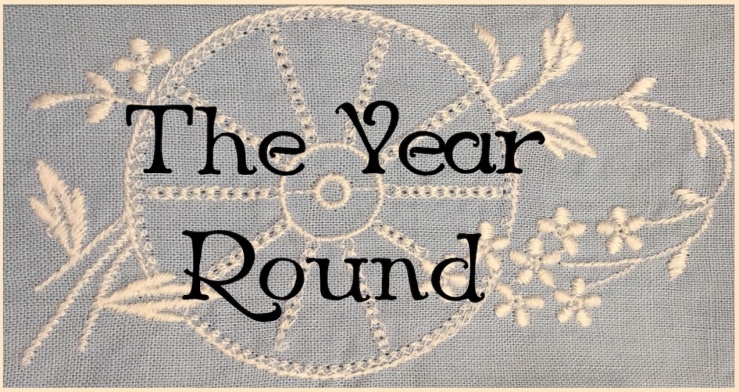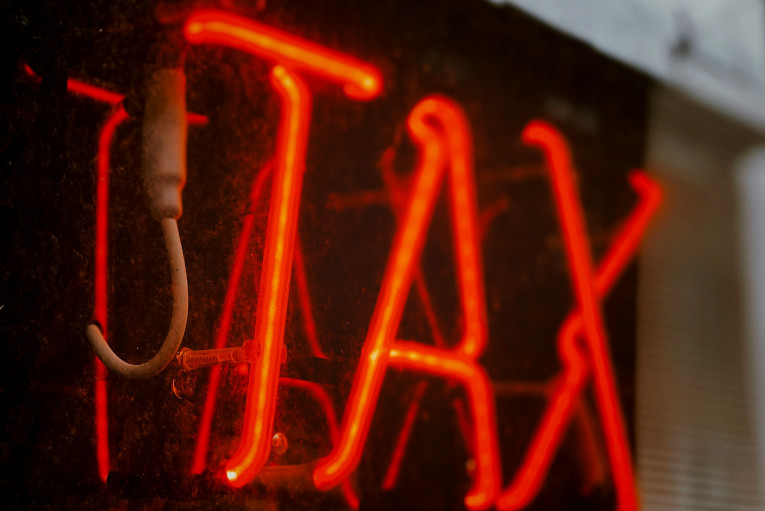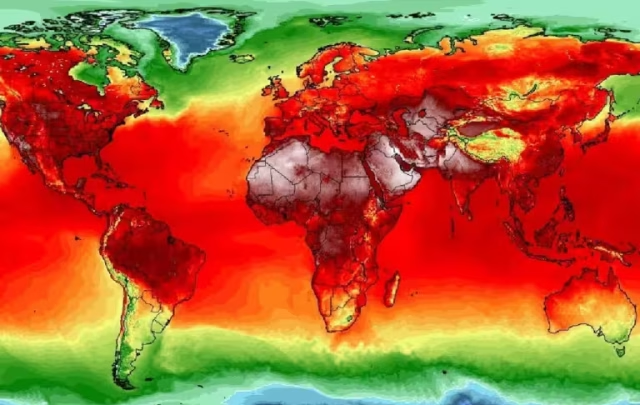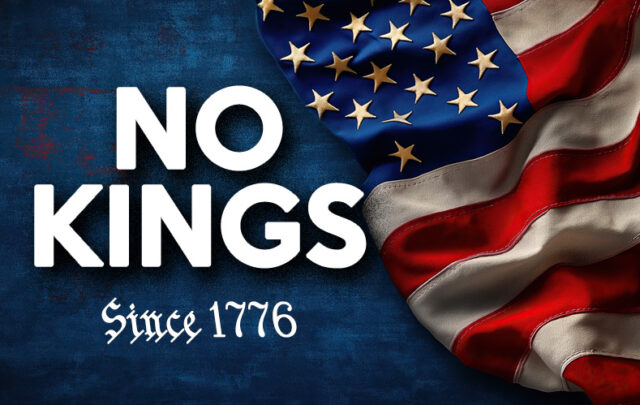April 15th is Tax Day for the United States. In most years taxes are due on this date, though exceptions are made for weekends and recently COVID seems to have added on extra days. I don’t know anyone who puts it off until today because the penalties for missing the due date are sufficiently dire to discourage even chronic procrastinators. Most years, I have mine filed by the middle of March, though if I’m expecting a large refund I will file as soon as I can gather the paperwork. Sadly, large refunds are rare, but on the other hand I rarely have to write a check in the spring. I don’t claim any withholdings on my paycheck, so I’ve already paid at least what I owe, usually a bit more. Between state and federal taxes, I generally receive a refunded over-payment of about $200. Not much, but it serves as a fairly effective “bank account” for annual seed expenses.
I willingly pay my taxes. Or I used to be willing, when tax monies still paid for things I like to see in my life. I like things like smooth roads and well-funded libraries and accurate weather forecasts and hospitals that can actually tend to illness and injury. I am less fond of military expenditures and lining the pockets of billionaires. I wish I could earmark my tax dollars to go to supporting life rather than destroying it. In a healthier world, tax revenues would go to the government entities that spend money on promoting welfare, and the most efficient and effective way to get money from the taxpayer to the community need is to collect taxes locally.
States and municipalities build and support infrastructure, fund local public goods and services, and largely manage the federal programs applicable within their jurisdiction. So, our tax system ought to be inverted accordingly. Rather than send payroll taxes to a centralized collector which then gets tossed about by the federal legislature and mostly spent on the military, send most of our money to the places where the money is needed — and where it will benefit us. A small amount could still be sent to the federal government from payroll and income taxes, but that too probably should be inverted. As it is now, Congress divvies out the money to states. It would be wiser for states and municipalities to send a certain percentage of their tax revenues to the feds — and there should be voting on what that percentage is. If we, in Vermont, do not want our tax money going where it is going to harm us, then we should get to decide to withhold it. (Remember that whole “taxation without representation” thing that started this whole country?…)
I realize this goes against the Constitution, but the Constitution is dysfunctional. It was never meant to work for the whole country, only for the class of people represented by the signers — and even they had arguments about efficacious taxing. Centralized tax collecting was not the first choice of most of the delegates. Madison and Hamilton had to use all their powers of persuasion to create a Federalist majority, and even so, they were forced to accept the limitations of the Bill of Rights in order to bring the Anti-Federalists into the fold. We have since added to that Bill with many Amendments curtailing the power of the Federal government, but we have never managed to fix taxation.
The Constitution reads, “The Congress shall have Power To lay and collect Taxes, Duties, Imposts and Excises, to pay the Debts and provide for the common Defence and general Welfare of the United States…”. This seems to me to be open to interpretation. It might not even need an amendment to define “common” and “general” narrowly. If it only benefits a few wealthy urbanites from the coasts, is that really common or general? For that matter “Defence” and “Welfare” seem to be rather at odds with each other and not at all what our tax dollars are buying in either case. Perhaps, someone should take a dictionary to Congress so they might better understand what those words mean.
So let’s turn the system around and make it work for us. If local communities have direct access to income tax money, then there is less bureaucracy between the taxes you pay and the money spent on your community. Each tax dollar would go further toward meeting needs rather than paying administration costs. Furthermore, states and municipalities would only spend on what they need. Large swathes of the destructive military budget would vanish, freeing up billions of dollars for building and maintaining lives, not killing. (Or, more stupidly, stockpiling enormous piles of expensive “deterrent” weaponry… weapons that we never intend to use… that we can’t use and still have a we left afterwards…)
Another benefit is that if states had control of income tax, they would be less desperate for property taxes. Rising property taxes tend to penalize those who don’t have much income and yet have property. Disabled and elderly people, farmers, and small business owners who don’t have a flexible market (which is kinda all small business owners) are all hurt when property taxes increase. Though it must be said that tax rate increases are not behind your doubling tax bill. Most of that comes from the irrational real estate market that is driving property “values” higher and higher. The appraisal on your home, the basis for your property tax bill, is ballooning each year. Most homes, even homes that were sold in the last decade, are valued at two to three times their last sales price. That’s what is making your property taxes so high, not the tenth of a percent increase in tax rate passed last year. But it would still be be better for the community to fix property taxes, to rely on more fungible and flexible income taxes instead. (This could be done by fixing property values at the time of sale, and perhaps grading tax rate increases by ability to pay). I’m not saying that we should get rid of property taxes, but reducing them would take the burden off of the most vulnerable in the community, saving the community the cost of taking care of those people in the long run.
Now, one commonly collected local tax, the sales tax, does need to be eliminated or at least limited to economic activity that a community would like to discourage. Sales tax does not benefit a community. It reduces sales. This might be a good goal for shipping in imported products and, of course, anything that is contributing to the disaster (which, arguably, is everything…). But any flat tax is going to eat up a larger percentage of income for those who live on low incomes than those who have wealth to spare. A sales tax is hard on the poor. It limits what they can buy beyond the untaxed bare necessities. In a poor community this means that restaurants, hair salons, and other services that are subject to sales tax lose sales — and they get none of the sales tax revenues to make up for those lost sales.
However, on the other hand, if the goal is to limit sales of certain things, a sales tax is going to have little effect. Those who spend money on gas-guzzling cars or imported wines or weekends in Maui are not deterred by sales tax. They are already throwing money away, mostly on frivolity. Over time, taxing sales tends to favor businesses that sell the very things that taxation is meant to discourage. The result is a community that does not meet needs and largely depends on tourism, if there are any revenue streams at all. Most places that have high regressive taxes also have a dead Main Street and shuttered doors.
So get rid of all regressive taxes. All taxes should be a percentage of what you have to spend, with higher percentages on higher wealth — because they can afford to support their community, and presumably, if they are wealthy, they have already reaped ample benefit from that community in the form of schools and trained employees and roads and sewer lines and so on and on and on. And if we’re getting rid of regressive taxes, it should be noted that payroll tax, tax on wages earned, is far more of a burden than taxing income from “investment”. Capital gains and rents of all kinds should be taxed at higher rates than wages, with no loopholes and tax credits (credits only work if you already have the disposable income, you know…). And, though sales tax is regressive, a tax on financial transactions takes money from those who have it. (In the process, a transaction tax would also introduce stability into the trading market by slowing down and rationalizing trades. If each transaction has a cost, then the number of transactions is going to be limited.)
One more thing while I am imagining a more equitable and effective tax collecting system. Collecting income tax by taking money out of every paycheck takes savings and savings interest income out of the pockets of taxpayers. It makes more sense, especially if the bulk of income tax is going to be collected locally, to establish a tax savings account system. Ideally, we’d have state banks to manage such things (among other reasons to have state banks). Each income-taxpayer has an account to collect payroll deductions. Then, each quarter, owed or estimated tax monies are paid out to states and municipalities. Federal income taxes could still be paid annually. These accounts would not be available for other withdrawals except in emergencies, and then probably with penalties, somewhat like withdrawing from tax-free retirement accounts (which really shouldn’t be a thing… also something that benefits the wealthy and has no effect on the poor except to keep tax money out of state coffers…). But having the money in the bank in your own name earns you interest, boosts your net worth, and is just plain reassuring — as long as money and banking are still working properly. Sending it off each paycheck means you never get to benefit from those wages earned. Especially if you are sending it to the IRS.
(I think we should have similar savings accounts for insurance. We have health savings accounts, why not pay medical insurance out of those accounts on a quarterly basis? Or we could just do away with health insurance and have free medical care, a health care system that is state-supported, or, in other words, a health care system that is paid for with your taxes.)
I know none of this will ever happen. Too much inertia to overcome in our bloated system. And local tax collecting will never make fat billionaires and large corporations any fatter and larger. So we have the system we have until it falls apart. But whatever may come, I will continue to pay taxes as long as there are governments that can organize public expenditures. I’m not sure how long that will last in the world at large, but I suspect Vermont will be collecting tax money in some form for a long while, and very likely will mutate to public service in lieu of money when money falls apart. There are plenty of people in this state who foresee that happening in their lifetime. Some of them are older than me.
I don’t know how likely it is that our economic systems will collapse in the near term, though the current clown regime seems to be doing its level best to rush an implosion along. But whether utter breakdown is imminent or a few years down the road, collapse is already underway. Our casino-economy, as Patrick Noble named it, is fracturing. Really, it’s rather amazing that it’s held out for so long, even with the vast resources we’ve blown through to create and maintain this economic nightmare. Because there are two fatal flaws built into our monetary system.
First, in this economic system, banks create money through loans. (This is a simplification, but it is true enough as a gross working model of our monetary system.) For this to work, for money to exist, there need to be opportunities for profit, for interest, for more money paid back than loaned out. The investment banking system only works in the context of growth. This is equally true of all finance. Any investment that is made with the hopes of profit requires growth — you get no dividends on your stocks if the business does not take in more revenue than it spends. As energy and other resources dwindle, there will be fewer paths to profits, therefore less reason to invest, and therefore eventually collapse of the whole system, probably quite rapidly as people realize that they are losing not only potential profits but also what money they invested. This has happened many times in history, but this time there will not be new pools of resources and labor — and most recently, tax moneys — to pull us out of the economic dive.
Lest you think that this dive can be avoided, note that much of the investment world already produces no profit for most investors. Everything from crypto-currency to shale oil is being sustained almost purely by belief. This is why Noble named it the casino-economy. Much like any other form of gambling, people keep feeding money into the machine hoping for a “free” windfall of dividends. As this foundational belief is eroded by experiential evidence, the system breaks down. This is already happening. It is a primary feature of late capitalism and is regularly featured in news headlines.
However, I am not convinced that the collapse of the casino-economy will have noticeable effects on daily life for most people. Most people have nothing invested in it and derive livelihoods and goods from it only tangentially. It is where most of the monetary wealth in the world lives, but for the last many decades it has become increasingly self-contained. Finance has very little to do with real life. To be sure, our economy will tank when finance implodes, but the real world economy will likely carry on more or less uninterrupted. And, yes, this includes elements like trade, money, and banking. However, there is another fatal problem with our monetary system.
For lending to work, there need to be entities that have the credit and capacity to borrow. Even non-profit credit unions need their loans to be repaid. However, the number of businesses that can repay loans is steadily shrinking, and there are nearly zero people under 35 who can repay borrowed money. Many are already saddled with education debts that they will never be able to pay off. Lending to people who can’t repay, gambling on their change in prospects, is what led to the housing crash. Today, those future prospects are even less likely to change in favor of credit-worthiness.
Even where young people stand to inherit, few will inherit anything that can be exchanged for either value or credit. They may inherit stocks, but few stocks will be worth much and many will be worth less than the initial investment as profits dwindle due to increased resource costs. Some may inherit property. Of these, some may be inheriting something of real value that likely needs only minimal investment — mostly labor — to turn into a resource stream. However, it’s rather less likely that they’ll be borrowing so much that they sustain a monetary system — because they won’t need money. They’ll be producing their needs for themselves.
If all the property they inherit is a house, well, they’ll be lucky if that home is paid off — or is at least not worth less than the remaining mortgage on the property. But if an heir manages to turn a house owned outright into their home, then they are actually dropping out of the system. They don’t need more money except to maintain the house and translate 19th and 20th century infrastructure into something sustainable into the 21st. Their primary expense, that which most people need the most money for, is eliminated when they have a debt-free roof over their heads. They are not going to be part of a money trading economy. This suggests that millennials and all those younger folks are not going to be a credit market. Today, they have nothing but unsecured debt, and they have no obvious paths to changing that. If they do inherit wealth, it will not be monetary and may well take them out of the money market entirely. However, that best case scenario will not increase their ability to repay loans. The next generation is not going to have money to spend. This, by the way, is the logical conclusion of resource depletion and wealth concentration, turning all the real world goods into useless money, draining the future to increase present bank accounts. This is a doomed project.
It does not matter what our monetary system is. Any economic structure that is dependent on growth will collapse with the dwindling of material resources. But money is a luxury, not a necessity, and it primarily serves as a means to acquire more wealth. Trade works quite well without money as long as the scale of trade is needs-based and fairly local. Trade that goes beyond meeting localized needs is less about meeting needs than it is about generating wealth… and is therefore not terribly necessary.
However, I suspect money will continue to exist in some form, probably localized as it was in the past. This is to the advantage of local communities. Local currency, like local tax collecting, supports local economic activity. It stays within the community. It sustains the community. It also is an effective tool to protect small, local producers from outsiders, no import taxes needed. But there will be less money when there is less profit-seeking. There is just less need for money when the goal of economic activity is to meet needs. Money does not provide for any needs. It is not real wealth. It does not sustain anything. It just smooths exchange.
So even though I think money will exist, I’m not sure it will exist everywhere and there may be many regions where it vanishes entirely. In places where most people can meet most of their own needs, there is no need for exchange and therefore no need for money. Most of the world already lives with very little money. However, true poverty, an inability to meet needs, is only associated with cultures that rely on money to acquire necessities.
Money represents plenty in our culture, however the opposite is true. Money is not abundance. Money is not even real wealth. Wealth is, at minimum, actual resources, and probably is more accurately measured by including intangible relationships to the world, like love and happiness and a sense of safety. But money is just the arbitrarily agreed upon potential to buy bodily needs — and only those bodily needs that are available for purchase. It is a symbol of the possibility of met needs and, at the same time, the restriction upon that capacity. Money represents the polar opposite of abundance. It is scarcity. It is lack. It is deprivation and limitation. It is privation as the default state. In this culture, you must earn money to meet your needs; you do not have that natural right.
Because they are filtered through money, health and well-being are therefore contingent. In a money-centered culture, you do not live in a world that will nurture your body merely because your body grew in this place and requires nothing but this place — as is actually true. You live in a world of want because money has come between life and its necessary web of support. Money has created poverty.
This is true even for those who have money — because the body has more needs than food and shelter, and even those physical needs are not best met through market exchange. You can’t actually buy a fresh-picked and well-ripened peach. Oh, you might be able to pay for something close, but you will never get the same experience of peachiness that comes when you stand under a tree on a sunny August morning, inhaling the sweet scent of maturity, and gently slide the soft fruit into your hand and then bite into its flesh, letting its juices run down your arm and chin. This is not an experience that can be bought, and the more money you throw at trying to simulate this simple pleasure, the less likely you are of having it. Yet it is a need. We evolved to experience this joy in eating nutritious food. And the peach exists merely to fill that need. We made it so… and now money stands in the way.
Same goes for shelter. I am quite sure that a hut made of sticks and leaves, yet filled with trusted loved ones and warm fire and memory, is far better at creating security and refuge from the hard world than all the walls and weapons ever devised. The more money one has, the greater is the sense of danger and potential threat or loss. Money creates the opposite of safety. It creates strife and anxiety that no monetary exchange could ever allay. Money destroys trust and connection, and those are essential to shelter.
So what then is abundance? I would say that it is the actual natural state of the world. It is the world that created and nurtured us. It is all our needs satisfied and no more beyond that to fret over. It is the time and the place of contentment, of delight, of communion and interdependence. It is the flow of happiness between beings. It is life. And it is all around us on this life-sustaining planet. Abundance is the world without money.
I believe we are careening toward a biophysical and cultural crisis that will very likely destroy money — along with a great many other things. But I also believe that we are falling toward abundance again. We will not have many of the things we possess now. We will not do many of the things we do now. Some of us will lose vast fortunes. But all of us will enter a world that sustains life, nurtures relationship, meets needs. We will live in a world of abundance. This is something to hope for on Tax Day… because when that time comes, there will be no more need for taxes…

Day of Tellus Mater
The middle of April was Earth Day for Romans. On this day, the fordicidia was celebrated. This feast day honored the personification of the Earth, Tellus Mater, the Earth Mother. The pontifices sacrificed pregnant cows, representing fertility in the womb, to bring a good harvest. Tellus Mater was closely tied to Ceres (Greek Demeter). Like the grain goddesses, she was a patron of marriage, but she was also called on in times of earthquake and invoked in oaths as the common grave of all.
Tellus Mater was also honored at the festival of the sowing, ferioe sementivoe, in January. From this, we can see that the fordicidia was probably a harvest festival, or a harvest-focused festival. Spring wheat sown in January would be ready to cut by the middle of April; and in fact, the Cerealia, the grain harvest festival, began a few days later on April 19th. We think of newly planted crops in spring, but for the critical grain harvest, both planting and harvest happened many times throughout the year, even in Europe. Rome was so dependent upon grain — bread accounted for about 70% of the daily caloric intake for plebs and the lower classes — that farming estates had fields in production year round, shipping harvests to the food-deprived metropolis in every season.
©Elizabeth Anker 2025





